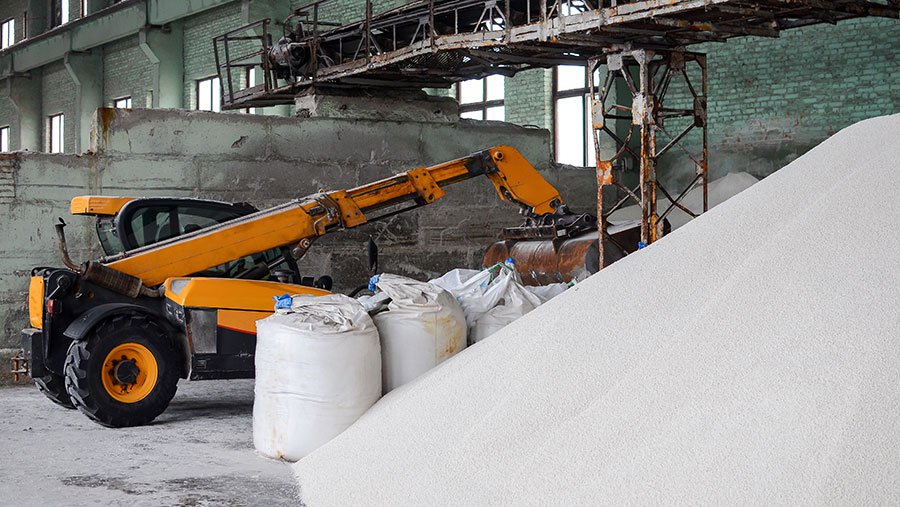Good availability and slow demand soften urea market
 © Kyrychukvitaliy/Adobe Stock
© Kyrychukvitaliy/Adobe Stock Urea prices have softened over the past couple of weeks on high stocks and slow ordering, with October deliveries onto farm priced at £830-£860/t.
The shortage of ammonium nitrate (AN) supplies and its high price have led to much higher urea imports, putting ports under pressure to bag up what is already in store.
With more vessels expected soon, that pressure is likely to continue in the short term, with the keenest prices closest to the ports. However, Indian tenders later this quarter could see prices firm, say traders.
At £870-£880/t for October, imported AN is still expensive against urea and in only very limited supply, with no new CF Fertilisers offering.
In a quiet market, potash (K) and phosphate (P) prices have eased as many farmers take P and K holidays.
Further reductions look likely over the next couple of weeks, according to merchants, also bringing the prospect of lower priced PK blends later this autumn – currently 0:24:24 is £730-£740/t, while 0:26:26 is about £790/t.
Triple super phosphate is going onto farm in a range from £830/t to £850/t, while diammonium phosphate has reduced by about £100/t to sit at about £1,000/t or a bit less in some areas. Muriate of potash is priced at £735-£740/t for October.
Call for EU fertiliser strategy
Food security fears have led the European Parliament to call for an EU strategy on fertilisers, alongside similar calls from industry.
Up to 60% of EU fertiliser imports come from Russia and Belarus, while the high price of natural gas has caused widespread closures of AN plants across the EU and beyond.
Addressing the parliament last week, EU commissioner Janusz Wojciechowski said farmers in member states had ordered about 20% less fertiliser this summer and that the domestic (EU) fertiliser sector needed to be strengthened and made more autonomous and reliable.
To this end, the European Commission is to put forward a communication on fertilisers, covering food security and greening, alongside how to make the EU’s fertiliser industry less externally dependent and how to make its farmers less reliant on fertilisers.
However, this stopped short of an EU fertiliser strategy which many had hoped for.
